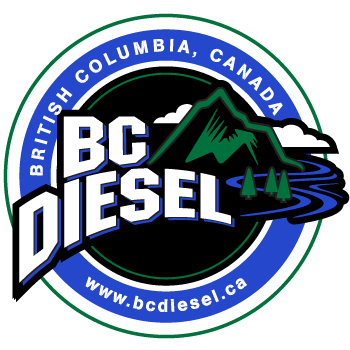Menu
Menu
- Transfer Cases & Misc Items (4)
- Air Filtration (574)
- Chips, Tuners & Displays (403)
- Cooling Systems (268)
- Transfer Case, Differential & Axle Parts (113)
- EGR Valves, Coolers and Delete Kits (115)
- Engine Blocks & Cylinder Heads (138)
- Engine Parts & Upgrades (1087)
- Engine Valve Covers, Gaskets & Seal Kits (159)
- Crankcase Vent (CCV) and PCV Kits (12)
- Engine Electronics (43)
- Engine Oil Pans (10)
- Engine Oil System (133)
- Exhaust Manifolds and Gaskets (81)
- Glow Plug Systems (17)
- Engine Sensors & Wiring Systems (140)
- Head Studs, Main Studs & Rod Bolts (71)
- Engine High Idle Kits (12)
- Internal Engine Components (95)
- Oil/Fuel Caps (17)
- Intake Manifolds & Gaskets (67)
- Up-Pipes and Y-Pipes (32)
- Water/Meth Injection (0)
- Engine - Misc Parts (198)
- Alternators, Starters & Cables (84)
- Turbochargers (284)
- Intercoolers, Pipes & Boot kits (235)
- Exhaust Brakes (77)
- Exhaust Systems & Delete Pipes (653)
- Turbo To Midpipe (2)
- Turbo Back Exhaust Systems (146)
- Down Pipe Back Exhaust Systems (139)
- DPF Back Exhaust Systems (79)
- Cat-Back Exhaust Systems (31)
- CAT & DPF Delete Race Pipes (86)
- Turbo Down Pipes (45)
- Exhaust Tips (59)
- Mufflers & Delete Pipes (25)
- Exhaust Adapters & Misc (5)
- Exhaust & Turbo Clamps (31)
- Emissions Delete Packages (14)
- Fuel System & Upgrades (1112)
- Fuel Air Separation Systems (262)
- Injection Pumps & HPOP (126)
- Fuel Supply/Lift Pumps (85)
- Fuel Injectors (180)
- Fuel Injector Nozzles (5)
- Fuel Rails & Race Plugs (30)
- Fuel Tanks (83)
- Fuel Lines (44)
- Fuel Filter Housings & Delete Kits (54)
- Fuel Filters & Water Separators (65)
- Fuel Injection - Misc Items (160)
- Fuel & Oil Additives (18)
- Positive Air Shutoff / E-PAS (22)
- Steering And Suspension (1018)
- Body Mount Kits (17)
- Accessories (126)
- Transmissions - Automatic (416)
- Transmissions - Manual (81)
- Tools (28)
- BC Diesel Apparel (8)
- Gift Cards & Stickers (4)
- New products
- My account
- Contact us
- Become a dealer
Free Shipping on Orders Over $100.00 *Conditions apply - Click for details
- Home /
- Turbochargers /
- Turbochargers - OEM/Stock /
- Garrett New Ball Bearing Powermax GTP38R Turbocharger - Ford 7.3L Powerstroke - 1999.5-2003
Shop by truck
Filter products
Shop By Truck
Categories
- Transfer Cases & Misc Items (4)
- Air Filtration (574)
- Chips, Tuners & Displays (403)
- Cooling Systems (268)
- Transfer Case, Differential & Axle Parts (113)
- EGR Valves, Coolers and Delete Kits (115)
- Engine Blocks & Cylinder Heads (138)
- Engine Parts & Upgrades (1087)
- Alternators, Starters & Cables (84)
- Turbochargers (284)
- Intercoolers, Pipes & Boot kits (235)
- Exhaust Brakes (77)
- Exhaust Systems & Delete Pipes (653)
- Emissions Delete Packages (14)
- Fuel System & Upgrades (1112)
- Fuel & Oil Additives (18)
- Positive Air Shutoff / E-PAS (22)
- Steering And Suspension (1018)
- Body Mount Kits (17)
- Accessories (126)
- Transmissions - Automatic (416)
- Transmissions - Manual (81)
- Tools (28)
- BC Diesel Apparel (8)
- Gift Cards & Stickers (4)
Manufacturers
- Arrowcraft
- AC Delco
- AFE Power
- Airaid Air Filter
- Airdog Pureflow
- Airlift Suspension
- Alliant Power
- Allison Transmission
- Alientech
- AMDP Custom Tuning
- AMP Research
- Archoil
- Automotive Racing Products
- ATS Diesel Performance
- Baldwin Filters
- Avto
- Banks Power
- BC Diesel
- BD Diesel Performance
- BDS Suspension
- Bilstein Shocks
- Bosch
- BOD Engineering
- Bostech
- Borgeson Universal Co.
- Bulletproof Diesel
- Bully Dog Technologies
- Bushwacker
- Carli Suspension
- CATERPILLAR
- Cognito Motorsports
- Cummins Inc.
- Dana/Spicer Inc.
- Daystar
- DFC Diesel
- DieselRX
- Dieselsite
- D&J Precision Machine
- DieselR Corp
- Donaldson
- Dorman Products
- Driven Diesel
- Dirty Diesel Customs
- D-Tech Canada
- Dynatrac
- Edge Products
- EFI Live
- EZ Lynk
- Exergy
- FASS Fuel Systems
- Fleece Performance
- Fleetguard
- Flight Diesel
- FloPro Exhaust
- Fish Tuning
- Ford / Motorcraft
- FOX
- Fluidampr
- Full Force Diesel Performance
- Full Speed Diesel Performance
- Gator Fasteners
- Garrett Turbos
- GDP Tuning
- Hamilton Cams
- Hellwig
- H&S Motorsports
- H&S Performance
- HP Tuners
- Husky Liners
- Industrial Injection
- Kryptonite Products
- Mag-Hytec
- Mahle Aftermarket
- MBRP Exhaust
- Mean Green
- Merchant Automotive
- Mel's Manufacturing
- Mishimoto
- Mopar
- MOOG
- Northern Tuning
- P1 Race Parts
- PacBrake
- Powerstroke Products
- PPE
- PurePower
- RaceME
- ReadyLift
- Redhead Steering Gears
- Revmax
- RIGID Industries
- S&B Filters
- SCT Performance
- Shibby Engineering
- Sinister Diesel
- Smarty Tuners
- SoCal Diesel
- South Bend Clutch
- Stanadyne
- Suncoast Diesel
- S&S Diesel
- Synapse Auto
- Super Springs International
- Synergy
- Titan Fuel Tanks
- USA Standard Gear
- Warn Industries
- XDP (Xtreme Diesel Performance)
- Yukon Gear & Axle
- Zone Offroad
- Zumbrota Drivetrain

